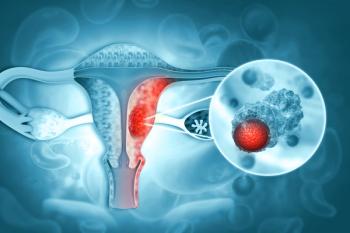
Study Finds Teen Pregnancy Could Signal Higher Risk of Premature Death in Young Women
Though deaths during teen pregnancy and childbirth are uncommon, a study shared in JAMA Network suggests teen pregnancy could indicate adverse experiences during their younger years.
Teen pregnancy could serve as a sign for a higher risk of premature death in early adulthood, according to recent study shared in
Death among teens and young adults is unfortunately more common than expected, the study shared.
The
Leading causes of death in the United States among teenage girls include unintentional injury, suicide and homicide, while unintentional injury, cancer and suicide top the list for those aged 20 to 44, the JAMA study shared.
Though deaths during teen pregnancy and childbirth are uncommon from incidents such as from hemorrhage, high blood pressure disorders or sepsis, the study suggests teen pregnancy could indicate adverse experiences during their younger years.
For example, adverse childhood experiences, such as abuse or parental separation, are associated with subsequent teen pregnancy, substance use and suicide, as well as premature mortality.
Researchers of this study suggest that protective factors against teen pregnancy include stable family environments, school and peer support, open communication about contraception, free access to contraception and female empowerment to abstain from unwanted sex.
In addition, researchers suggested some of these factors could protect teens of youth suicide and self-harm.
However, it's unclear whether including teen pregnancy into prevention efforts would help reduce the number of premature deaths, given limitations of prior studies that often relied on self-reported data and information lacking on the causes of death.
To address these gaps, researchers conducted the cohort study to examine premature death risks associated with teen pregnancies.
Using population-based data from Ontario, Canada, researchers followed 2.2 million females from age 12 and up between April 1, 1991 and March 31, 2021.
Researchers studied the teens within a universal healthcare system, capturing all teen pregnancies and related outcomes.
Results showed a 1.5 times higher risk of premature death by approximately age 31 among those with one teen pregnancy and a 2.1 times higher risk among those with two or more teen pregnancies.
It was found that the risk of death was higher if the pregnancy ended in a miscarriage or birth and for deaths due to injury, especially for pregnancies before age 16.
Limitations were found in this study and include the inability to identify gender in administrative data and the lack of exploration of race or ethnicity as confounders.
Early indications of women at risk through factors like teen pregnancy could facilitate access to appropriate support and interventions, researchers suggest.
Targeted strategies considering age at pregnancy, number of pregnancies and pregnancy outcomes could also help prevent premature death among females.
Overall, teen pregnancy could serve as a warning for premature death risk. Preventive measures should focus on protective factors and addressing their past experiences to promote better health outcomes among teens and young adults.
Newsletter
Get the latest industry news, event updates, and more from Managed healthcare Executive.























